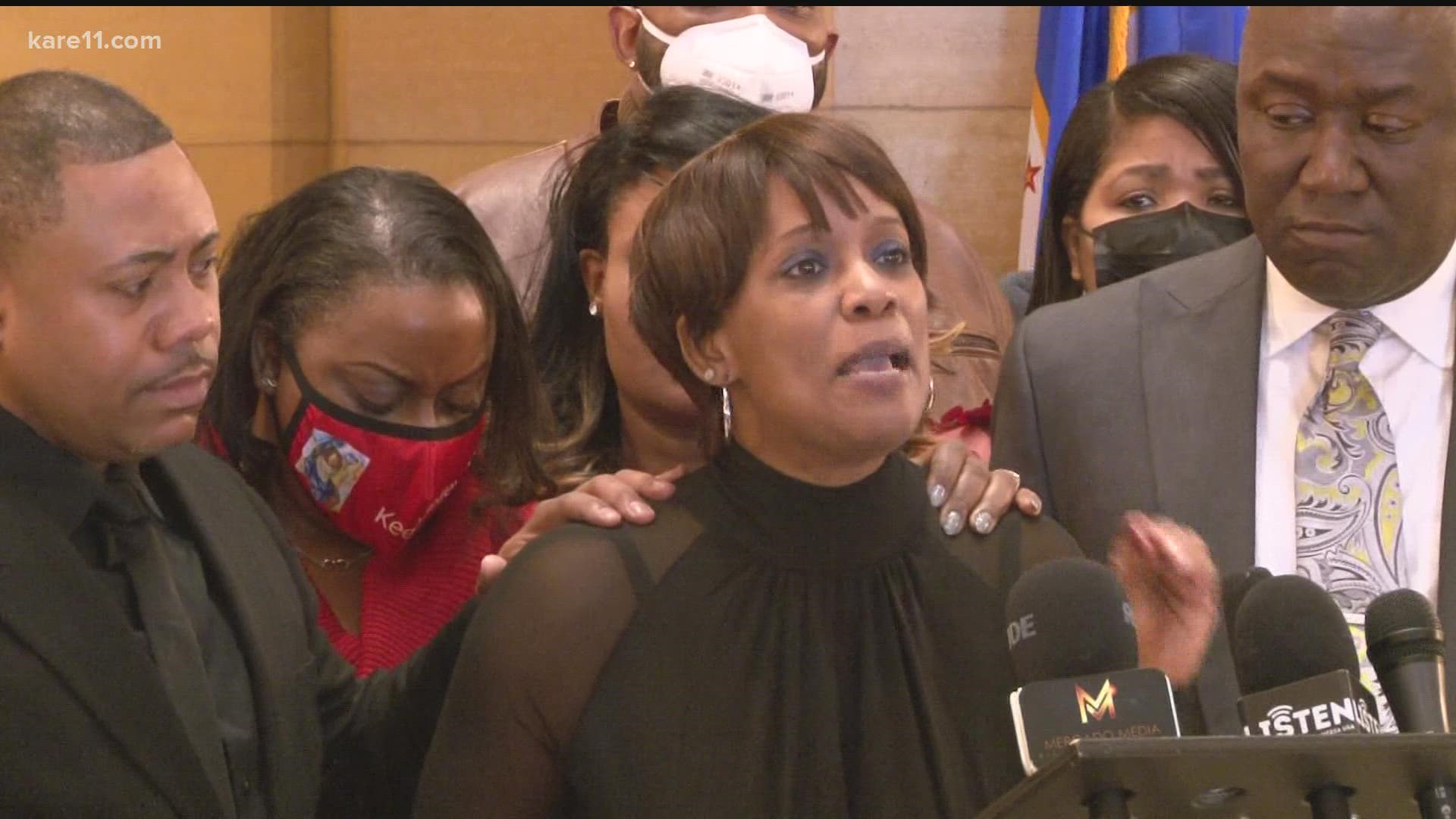ST PAUL, Minn. — Words of pain and trauma reverberated through the State Capitol Rotunda for two hours Thursday afternoon, as the family of Amir Locke and their attorneys joined the call to ban no-knock search warrants in Minnesota.
"Am I angry? Yes, I am. Am I going to continue to be the voice for Amir? Yes, I am," Karen Wells, Amir Locke's mother, told Capitol reporters.
The February 2 police killing of Locke, a 22-year-old Black man, has spurred a reexamination of the use of no-knock warrants. Locke's father, Andre Locke Sr., said his son would still be alive if state lawmakers had passed a full ban on no-knock warrants last year.
"I'll state the facts. The blood is on the legislature. Those are the facts," Locke remarked.
"Amir didn't have the intent, the opportunity, nor the ability to hurt those officers."
Democrats proposed a ban on no-knock searches last year, but Senate Republicans would only agree to ban the practice for drug cases. That law didn't apply to the circumstances surrounding Amir Locke's death.
Attorneys Ben Crump and Jeff Storms, who also represented the families of George Floyd, Daunte Wright and Breonna Taylor, lamented the fact that it takes the tragedies to put police reforms on the radar for people who aren't Black.
Crump cited a study showing 82% of no-knock searches in the United States happen in the homes of Black persons.
"This isn't happening where white people live. This is happening to Black people. They are violating our constitutional rights on a daily basis."
A Minneapolis officer fatally shot Locke while conducting a no-knock search for Locke's cousin Mekhi Speed, a 17-year-old who was linked to the Jan. 10 murder of Otis Elder in St. Paul.
Amir Locke was never under any suspicion himself, but happened to be spending the night in Speed's brother's apartment. He had a legal permit for the handgun he had in his hand when officers charged into the apartment.
Body camera footage appeared to show that Locke was stirred from his sleep on a sofa, his head still covered by a sheet, and his hand came out from under the sheet holding a handgun. Nine seconds after officers crossed the threshold shouting, "Police! Search warrant!" Locke was mortally wounded.
"I can't even watch to footage of my baby slumped over on the couch, where he was sleeping. He should've still been asleep," Wells said.
House Democrats are moving forward with a bill that would fully ban no-knock searches in Minnesota, leaving the single exception of cases in which an innocent person's life is at risk. Crump and the Locke family say they oppose any exceptions, because they don't want to give officers any leeway when it comes to making those decisions.
Senate Republicans say they're studying the issue, but any discussion of changing the laws around no-knock warrants would have to include law enforcement's viewpoints.
Also on Thursday, a Hennepin County judge authorized the release of warrant documents connected to the investigation which led up to the shooting death of Locke by a Minneapolis SWAT team member on Feb. 2.
The documents show both knock and no-knock warrants were issued for three units at Bolero Flats Apartments in downtown Minneapolis, in connection with the St. Paul police search for Mekhi Speed. SPPD consider Speed to be a suspect in the Jan. 10 shooting death of Otis Elder.
The initial warrants for the Bolero Flats units, signed by Judge Peter Cahill on Jan. 31, called for a daytime search and did not request no-knock entry.
Three additional warrants for the same units were later signed by Cahill on Feb. 1, authorizing a nighttime, no-knock entry, citing safety reasons and to preserve evidence.
Watch more local news:
Watch the latest local news from the Twin Cities in our YouTube playlist:

